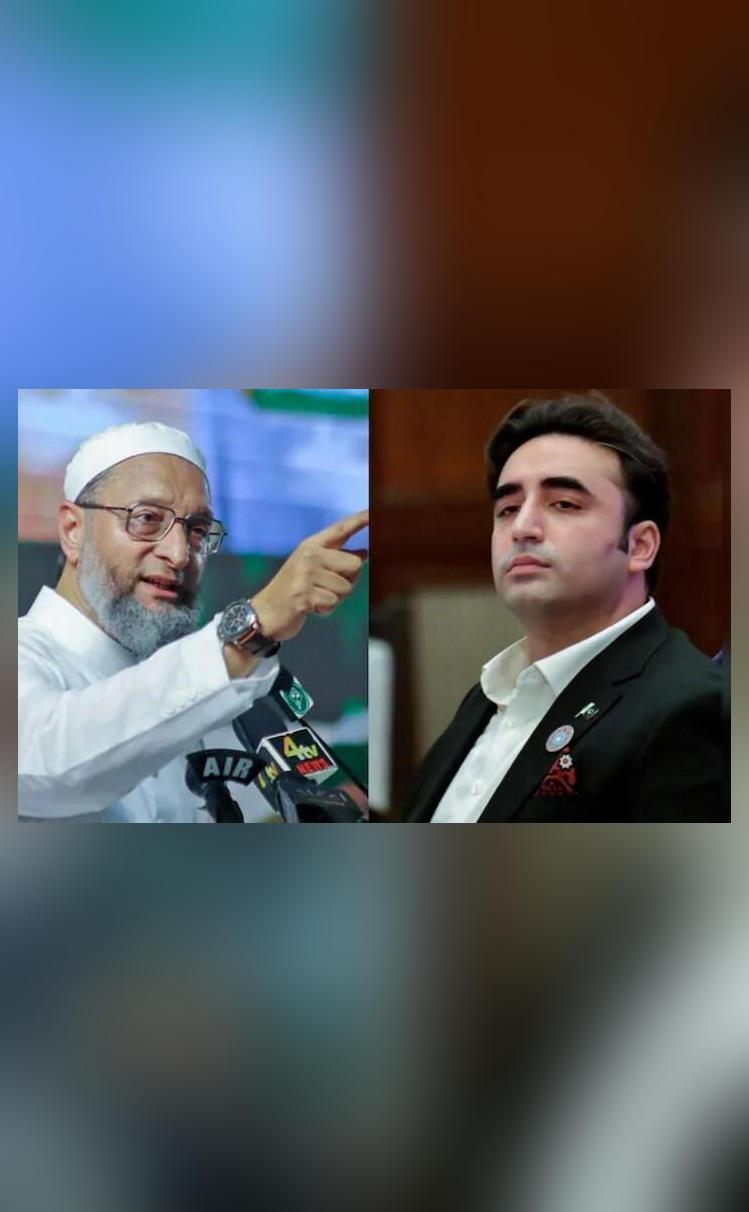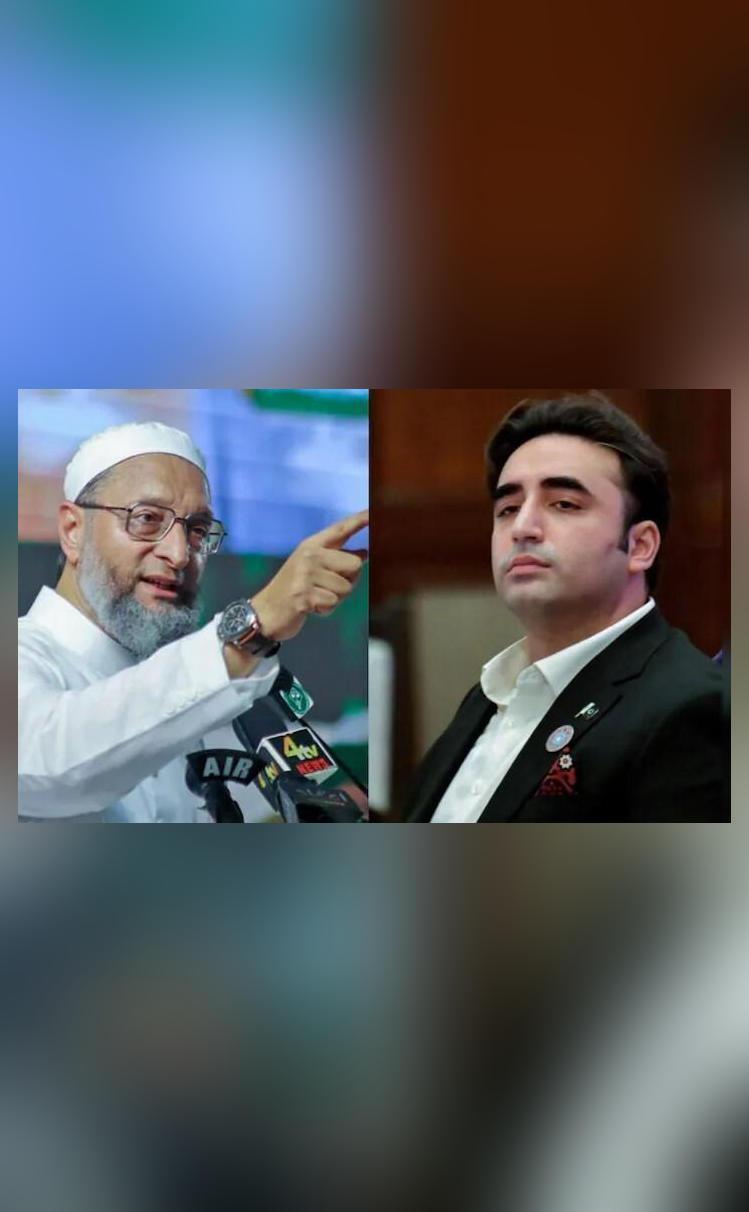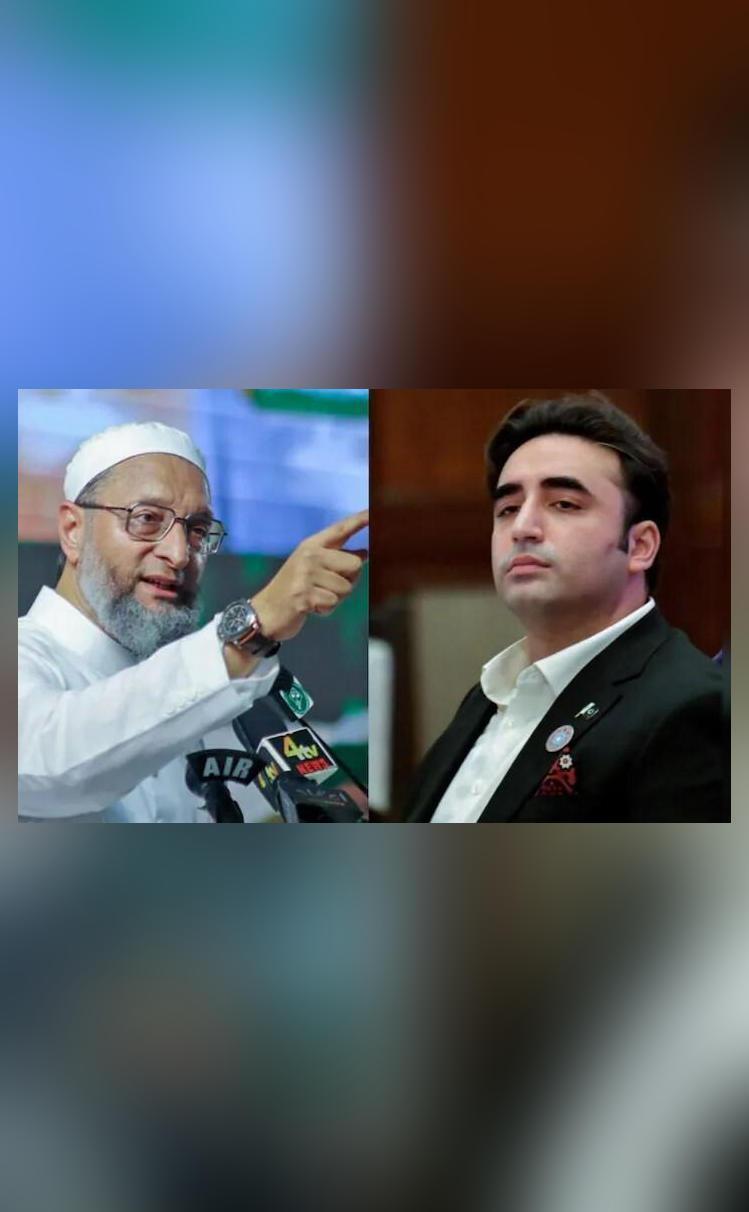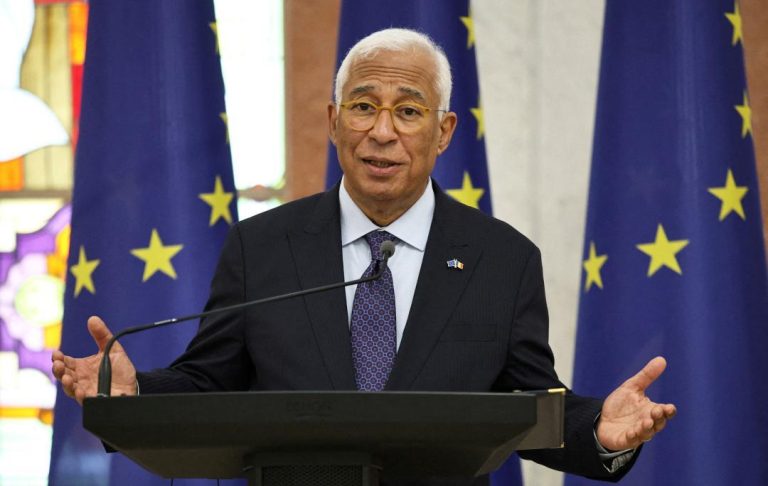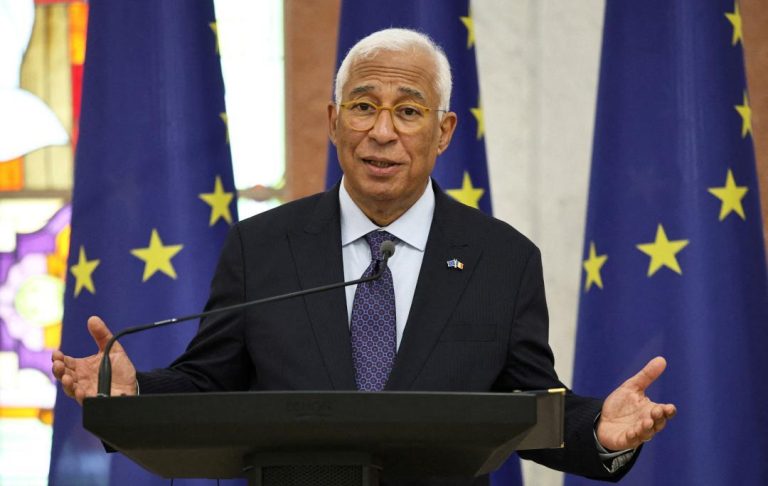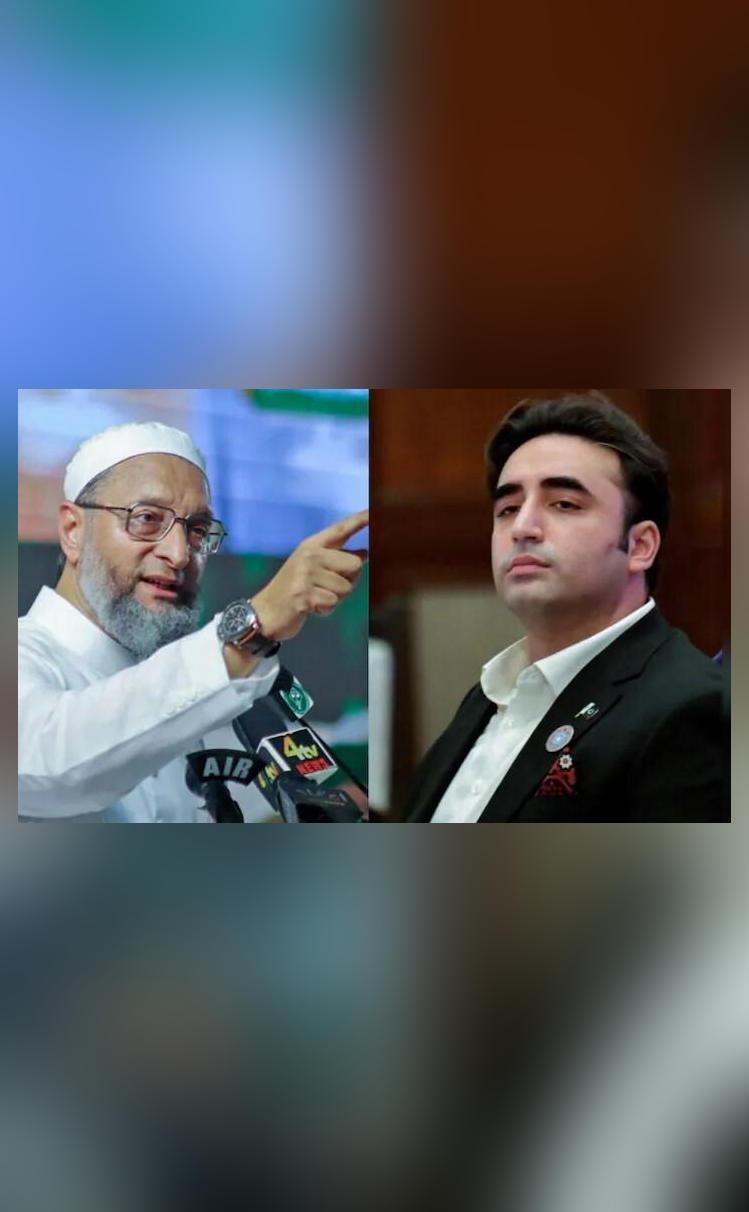
Title: You Can’t Run Pakistan Without US Help & You’re Trying to Stare Us Down: Owaisi to Bhutto
The recent remarks made by Pakistani politician Bilawal Bhutto, the chairman of the Pakistan Peoples Party, have sparked a heated debate in the political circles. Bhutto, in an interview, threatened that “Either our water will flow or their blood” will flow, in reference to the Indus Waters Treaty between India and Pakistan. This threat was met with a sharp rebuke from Asaduddin Owaisi, the chief of the All India Majlis-e-Ittehadul Muslimeen (AIMIM).
Owaisi, known for his forthright and often provocative statements, took to social media to respond to Bhutto’s remarks. He said, “Unless the US gives you something, you cannot run the country, and you’re trying to stare us down.” This remark is a clear indication that Owaisi believes Pakistan’s dependence on the United States for financial and military aid is a significant factor in its ability to run the country.
Bhutto’s remarks were in response to the recent tensions between India and Pakistan over the Kashmir conflict. The situation escalated after India revoked Article 370 of its constitution, which granted special status to Jammu and Kashmir. Pakistan has been protesting against this move, and Bhutto’s statement was seen as a threat to India’s sovereignty.
However, Owaisi’s response to Bhutto’s statement is a reflection of the complex relationship between India and Pakistan. The two countries have a long history of conflict and tension, and their relationship has been marked by numerous wars and skirmishes. The Kashmir conflict, in particular, has been a major point of contention between the two countries, with both sides claiming sovereignty over the region.
Owaisi’s statement is also a reflection of the role of the United States in the region. The US has been a significant player in the region, providing financial and military aid to both India and Pakistan. However, the US has also been critical of Pakistan’s military establishment, accusing it of supporting terrorism and destabilizing the region.
In recent years, the US has been working to reduce its dependence on Pakistani military aid, in an effort to promote stability in the region. The US has also been providing military aid to India, in an effort to counterbalance Pakistan’s military capabilities.
Owaisi’s statement is also a reflection of the challenges faced by Pakistan’s economy. The country has been facing significant economic challenges, including a high national debt and a lack of foreign investment. The country’s economy is heavily dependent on foreign aid, and the US has been a significant source of this aid.
In conclusion, the remarks made by Bilawal Bhutto and Asaduddin Owaisi highlight the complex relationship between India and Pakistan. The two countries have a long history of conflict and tension, and their relationship has been marked by numerous wars and skirmishes. The Kashmir conflict, in particular, has been a major point of contention between the two countries, with both sides claiming sovereignty over the region.
Owaisi’s statement is a reflection of the role of the United States in the region, and the challenges faced by Pakistan’s economy. The country’s dependence on foreign aid, particularly from the US, is a significant factor in its ability to run the country. The US has been a significant player in the region, providing financial and military aid to both India and Pakistan. However, the US has also been critical of Pakistan’s military establishment, accusing it of supporting terrorism and destabilizing the region.
The situation between India and Pakistan is complex, and it is difficult to predict what the future holds. However, one thing is clear: the relationship between the two countries will continue to be marked by tension and conflict, and the role of the United States in the region will be a significant factor in shaping the future of the region.
